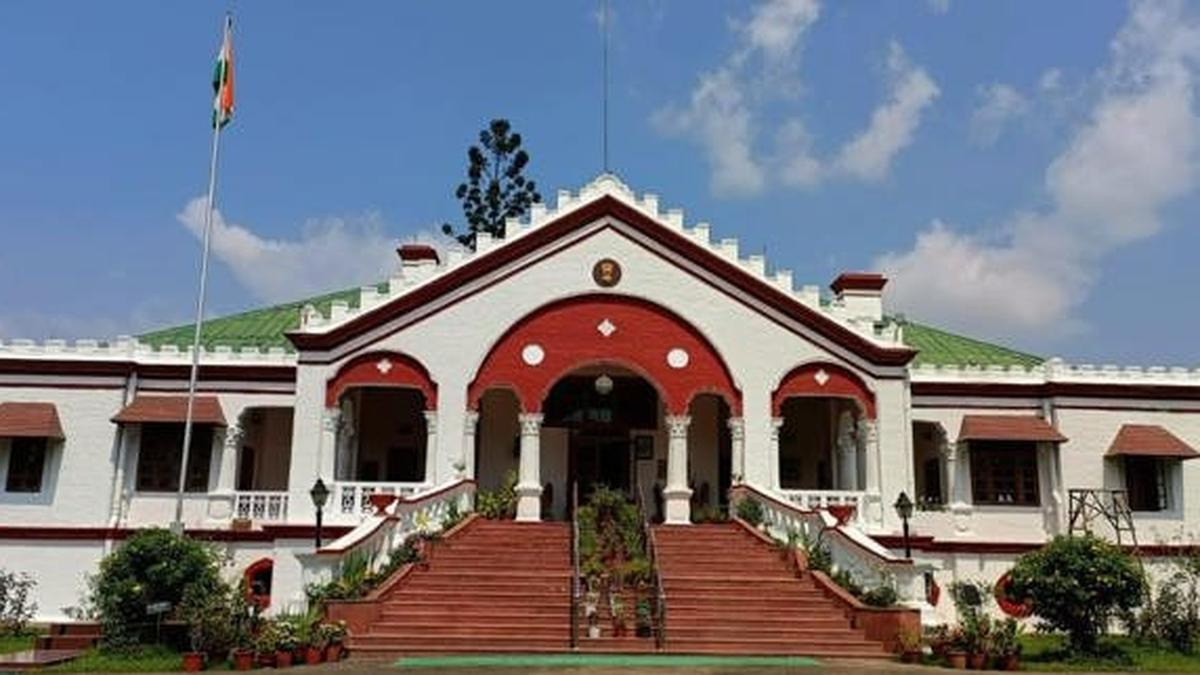 |
|
The political landscape of Manipur has dramatically shifted with the imposition of President's Rule, a decision announced by the Indian government on February 13th, 2025. This decisive action followed the resignation of Chief Minister N. Biren Singh four days prior, on February 9th, plunging the state into a period of political uncertainty. The Union Home Ministry's notification formally declared the suspension of the Manipur Assembly, citing a situation rendering the state government incapable of functioning according to the Constitution's provisions. This invocation of Article 356, a constitutional power allowing central government intervention in states, highlights the gravity of the situation and the perceived inability of the state's political apparatus to maintain order and governance.
The BJP's struggle to identify a suitable successor to Mr. Singh is a crucial factor underlying the imposition of President's Rule. Despite repeated meetings between BJP's Manipur in-charge, Sambit Patra, and Governor Ajay Kumar Bhalla, no resolution emerged. The lack of clarity and the apparent inability to form a new government within a reasonable timeframe likely contributed to the central government's intervention. The secrecy surrounding these meetings further fueled speculation and heightened political tensions. While BJP MLA Karam Shyam initially downplayed the possibility of President's Rule, the ensuing events proved his prediction incorrect, underlining the escalating crisis within the state's ruling party. The prolonged power vacuum and the failure to forge a stable government evidently convinced the central authorities that direct intervention was necessary to maintain stability.
The opposition Congress party wasted no time in criticizing the government's handling of the crisis. They highlighted the alleged violation of Article 174 of the Constitution, which dictates a maximum six-month interval between legislative sessions. Congress leader Jairam Ramesh pointed out that a planned Assembly session, scheduled to include a no-confidence motion, was effectively nullified following Mr. Singh's resignation. The Congress argues that this action represents a deliberate disregard for constitutional procedures and further exacerbates the state's precarious political climate. Their criticism also extended to Prime Minister Narendra Modi's apparent lack of attention to Manipur's plight, emphasizing the people's suffering and the need for greater central government engagement with the ongoing crisis. The Congress's accusations underscore the broader political implications of the President's Rule and the potential for further constitutional challenges.
Beyond the immediate political ramifications, the deployment of the Central Reserve Police Force (CRPF) also plays a significant role in understanding the overall situation. The briefing given to Governor Bhalla regarding CRPF operations indicates the presence of security concerns and potential unrest within Manipur. The scale of the deployment and the ongoing operational activities suggest the existence of deep-seated issues beyond the political vacuum, potentially involving security threats or social tensions. This aspect adds another layer of complexity to the situation and emphasizes the multifaceted challenges the central government faces in resolving the crisis. The focus on security underlines the broader context of President's Rule, highlighting its role not only in addressing political instability, but also in maintaining law and order and ensuring the safety and security of the citizens of Manipur.
The imposition of President's Rule in Manipur is a critical development with far-reaching consequences. It represents a significant intervention by the central government, highlighting the profound political instability within the state and the failure of the ruling BJP to overcome its internal challenges. The controversy surrounding the alleged violation of Article 174, combined with the Congress's sharp critique and the significant CRPF deployment, underscores the complexities of the situation. The long-term implications remain unclear, but the decision underlines the central government's determination to restore order and stability in Manipur, even if it requires overriding established state-level political processes. The situation necessitates careful observation as the central government navigates the intricate web of political, social, and security challenges facing Manipur during this period of President’s Rule. Further developments will determine whether the central intervention is successful in addressing the root causes of the crisis and restoring a functioning and stable government in the state.
